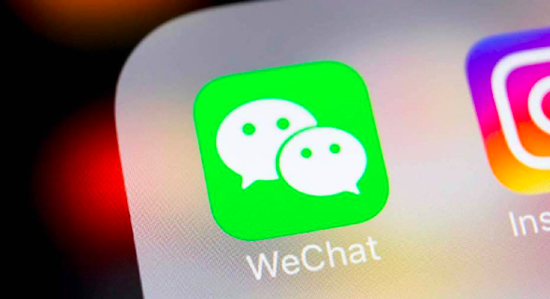What US can't take, it will try to destroy


WeChat is a terrific app. It does many things and it does them well. It's popular, intuitive and easy to use and has been successfully monetized. It does what some American-made apps do, but does them better and in a more integrated way. The US is not always number one.
Maybe that's why the United States administration, which has long nurtured Silicon Valley as the high-tech arm of the industrial-military establishment, and feigned to look the other way as invasive US-made apps and search engines such as Facebook and Google were unleashed on an unsuspecting world, has ordered a hit on WeChat.
WeChat's parent company Tencent has created a winner. The threat to ban WeChat from the US, where it is especially popular among people with links to China, is an attack on the free speech of millions. To ban a popular platform of expression is an abrupt authoritarian turn that even staunch US critics could hardly have predicted a few years ago.
Silicon Valley is still a force, so why is the US acting like a loser instead of a winner? Why the sudden smacking down of competitors?
Once the undisputed leader in computer hardware, app development, tech innovation and all things software, the US has now taken to bullying and banning vital competitors.
The US administration's limited intellect, short attention span, tax tomfoolery and tattered business record all point to a "let's make a deal" mentality. As a result, the US president has bullied and berated innovative companies such as Huawei, Tencent, and Byte-Dance, the developer of news and information content platform TouTiao and the insanely popular video-sharing app TikTok.
Some US politicians may have mastered Twitter, but they don't understand the complex, interconnected tech ecosystem and their mistakes are coming back to bite. The naysaying China hawks such as White House trade adviser Peter Navarro, Secretary of State Mike Pompeo and former Defense Department official Michael Pillsbury seek to level the playing field with China by beating a retreat from the field and then zapping it.
The preening desire to be number one at any cost and by any means on the part of the numbskull in the US administration is causing the US to lose friends and influence at a precipitous rate.
There was a time where US business confidence was sufficiently buoyant to live and let live, to share its technologies with the world, knowing it had new, superior products coming down the pipe. A time when tech artists and creators, such as Steve Jobs, not money-grabbing magnates like Mark Zuckerberg, ruled Silicon Valley.
Those days are over, if not objectively, then at least subjectively, in keeping with the doom and gloom headlines and the increasingly divisive and dour national mood.
When unbridled greed becomes the national ethos, it's a race to the bottom.
Leaving some major foreign policy debacles aside, the US in the early post-war period exuded confidence and projected a naïve but not entirely insincere aura of global goodwill. The complex, charismatic and tragic John F. Kennedy embodied that reach-for-the-sky, future-embracing ethos.
Even though the US limped out of Vietnam in 1975 with battered prestige, and culture wars replaced the space race as a focus of national yearning, the country retained an internationalist perspective that led to a boom in US-China trade, tertiary education and cultural exchanges.
It's no coincidence those US politicians were groomed in the negative art of the deal by Roy Cohn, consigliere to criminals and Cold War McCarthyites.
What's all that got to do with WeChat? Every time the US president touches something, he makes it worse. The US' rose garden has been vandalized from within, it's cracked and broken, its beauty withered on the vine.
The US administration allowed the excoriation of Huawei to continue apace, while sleazily hinting that a "deal" was possible. The administration naively thought it could make some serious cash by banning TikTok and then unbanning it under new ownership, only to make a mess of things.
Ditto for WeChat.
What the administration cannot take a piece of, it will attempt to destroy. It's the way it is. It is what it is.
The author is a media researcher covering Asian issues.
The views don't necessarily represent those of China Daily.


































